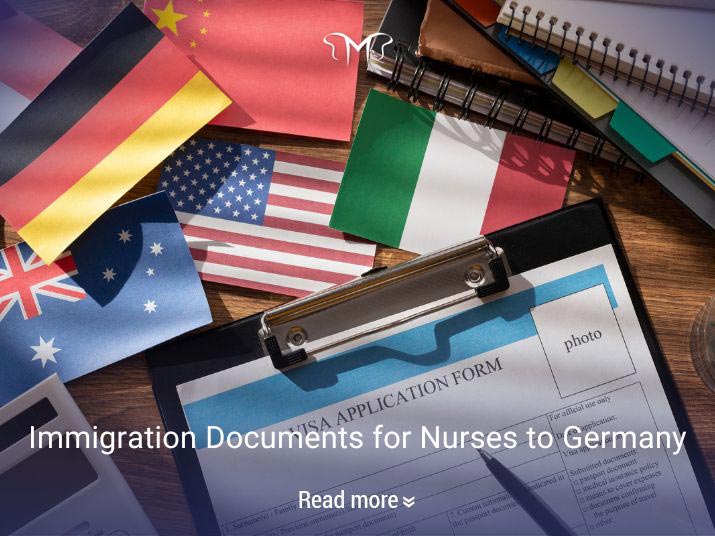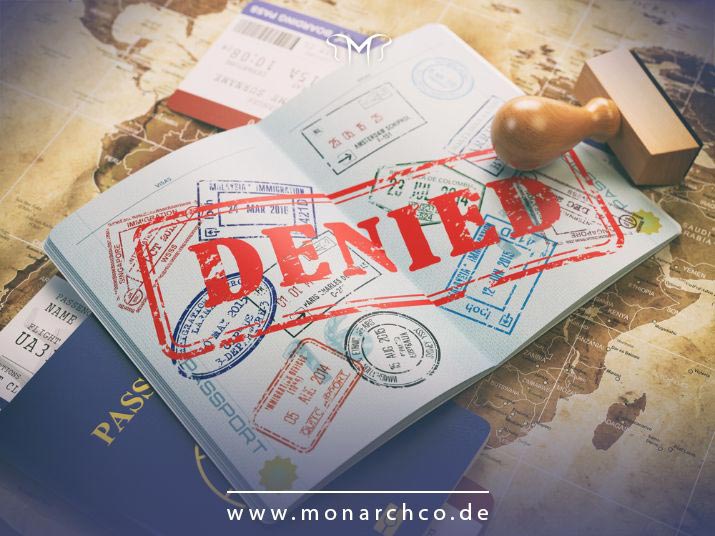
Immigration Documents for Nurses to Germany: A Comprehensive Guide
Germany, as one of the most advanced countries in the world, is constantly seeking skilled professionals in various fields, including nursing. Experienced nurses in Germany can access exceptional job opportunities. However, to seize these opportunities, you need to carefully prepare the necessary immigration documents for nurses to Germany. These documents not only facilitate your entry into Germany but also demonstrate your qualifications and skills. In this article, we will provide a comprehensive review of the required immigration documents for nurses to Germany and guide you through the process of preparing and presenting them. If you aim to successfully complete your immigration process to Germany, stay with us.
It is worth mentioning that if you are a nurse and wish to immigrate to Germany for free, Monarch will handle everything from A to Z, including support in gathering documents, translations, and document certifications.
Basic Documents for Applying for a Nursing Visa to Germany
To initiate the immigration process, you first need to prepare the basic documents that are essential for any visa application. The most crucial document is your valid passport, which should be valid for at least six months. Additionally, you must correctly complete the visa application form, which is usually available on the German embassy’s website. At this stage, the immigration documents for nurses to Germany also include certified translations of your educational and professional credentials, demonstrating your qualifications for working in Germany. Furthermore, you will need a recent passport-sized photo according to visa standards, travel insurance covering medical expenses, and a document explaining your purpose of travel to Germany. These basic documents will help you navigate the initial stages of the visa application process and move on to the next phase.
Required Professional and Educational Documents
One of the most critical stages in the immigration process to Germany is preparing your professional and educational documents. These documents must be meticulously prepared and translated to be approved by the German embassy and employers. For nurses, the required professional and educational documents include your educational certificates, such as diplomas and university degrees. These documents need to be translated into German and receive the necessary certifications. Additionally, letters of recommendation from previous workplaces are crucial in demonstrating your experience and skills. If you have specialized courses or additional certifications in nursing, make sure to include them with your documents. These papers reflect your capabilities for working within the German healthcare system and enhance your chances of success in this process.

Language Requirements and Necessary Tests for Immigration
One of the main requirements for nurses immigrating to Germany is proving proficiency in the German language. This language skill is essential not only for interacting with patients and colleagues but also for succeeding in daily life in Germany. The immigration documents for nurses to Germany typically include results from recognized language tests such as ÖSD, TELC, or Goethe-Zertifikat. For most positions, a B2 level certificate is required, indicating your ability to communicate effectively in German. Therefore, it is advisable to be aware of the specific requirements of each job position or immigration program and prepare your language documents carefully. These documents play a crucial role in confirming your qualifications for working and living in Germany.
Financial Documents and Proof of Financial Capacity for Living in Germany
To immigrate to Germany, you need to demonstrate that you have sufficient financial resources to support yourself in the country. Providing documents related to employment contracts from German employers can help prove your financial capacity. An employment contract indicates that you can cover your living expenses without needing public assistance. Additionally, supplementary documents such as bank statements, asset documents, or proof of income can be helpful. These financial documents are crucial as they not only serve as a formal requirement for the visa application but also show employers that you are capable of managing your finances in Germany. If you are applying through a job offer, you do not need to provide proof of financial means.
Read more: Financial Planning for Nurses: How to Achieve Financial Wellness as a Nurse

Medical Examination and Health Documents
Medical examinations and health documents are a vital part of the immigration process to Germany. These documents must show that you are in good general health and do not have any diseases or conditions that could affect your performance in the workplace. The medical documents should include a comprehensive medical report covering the results of various tests, such as blood tests and other evaluations. These documents need to be prepared by accredited physicians and translated into English or German. Additionally, you may need to provide a health certificate from a certified doctor confirming that you do not have any contagious diseases or specific health issues. Providing these documents assures employers that you are ready to work in healthcare environments in Germany and have no public health concerns.
Document Collection and Preparation for Embassy Submission
Collecting and preparing immigration documents for nurses to Germany is a critical step in the process. This requires precision and attention to detail to avoid any issues or deficiencies. Start by making a list of all necessary documents, including passport, educational certificates, professional credentials, language proficiency, financial proof, and medical records. Ensure that each document is up-to-date, translated, and has the required certifications. For translations, use certified translators to ensure accuracy and validity. After preparing the documents, carefully review them to ensure none are incomplete or incorrect. All documents should be organized neatly in a folder, and if necessary, prepare additional copies. Finally, schedule an appointment with VFS Global (the company contracted by the embassy) and submit your documents on the designated day. Following these steps will help ensure that your visa application is reviewed completely and without issues.
Important Tips for Completing Immigration Applications and Avoiding Rejection
Completing an immigration application is a crucial step in moving to Germany. To avoid rejection, follow these essential tips. First, the accuracy and correctness of the information in the application forms are crucial. Any mistakes or omissions can lead to delays or rejections. Therefore, carefully fill out all forms and review them multiple times before submission. Second, ensure that all required documents are complete and up-to-date. This includes valid translations of documents, necessary certificates, and supporting documents. Ensure that all documents are correctly translated and certified. Third, pay attention to the specific requirements of each embassy. Each embassy may have its own instructions and requirements, so make sure to obtain accurate and current information from the embassy or consulate's website. Finally, having a suitable timeline and submitting documents on time is very important. Delays in submitting documents or applications can negatively impact the review process. By following these tips, you significantly increase your chances of a successful immigration application.

Conclusion
Immigrating to Germany as a nurse can provide many opportunities, but this process requires thorough preparation and accuracy. Preparing the immigration documents for nurses to Germany is a vital stage that, if not done correctly, can pose a serious obstacle. By following the guidelines provided in this article and adhering to important tips, you can successfully and confidently complete your immigration process. Remember, success in this journey requires careful planning, gathering up-to-date and valid documents, and submitting them to the embassy on time. Once completed, you can travel to Germany with peace of mind and pursue a career in nursing.


